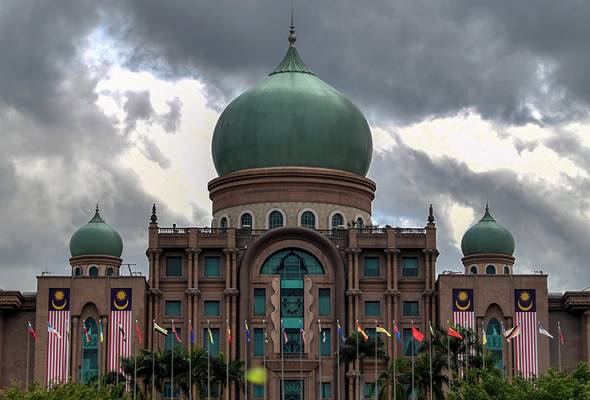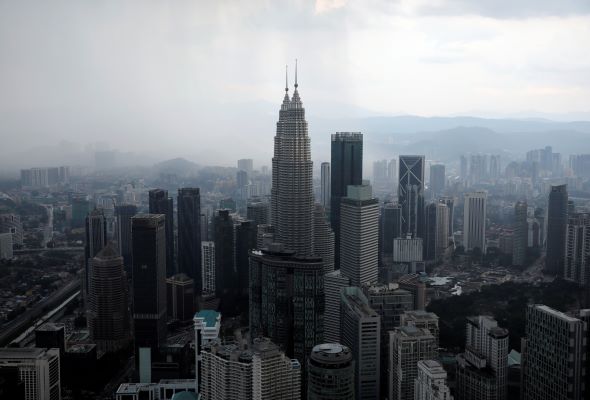
Published in Astro Awani, The Star, Malay Mail, MYsinchew, Asia News Today, Focus Malaysia, theSundaily & Bernama, image by Astro Awani.
Malaysia is at a crossroads today.
Amidst the higher vaccination rate in the Klang Valley coupled with lower admissions or hospitalisations, we are also seeing sustained increases in daily infection cases with no end in sight as yet.
And we’ll soon be having our 64th Merdeka celebration on August 31 against a backdrop of mixed signals on the public health front as well as economic gloom.
Cases reported for August 18 was the highest to date at 22,242 and death toll stood at 13,302. Our positivity rate continues to be at double-digits – 13.11%.
The backdrop has now extended to the political front with the abrupt resignation of Tan Sri Muhyiddin Yassin as the eighth Prime Minister on August 16 and with that the collapse of the Perikatan Nasional (PN) government that had borne the responsibility and burden of managing the Covid-19 crisis.
Our nation’s political stability is at stake.
As a result, added to the public health and economic fronts, we also now have what could be deemed a political crisis (of sorts).
Whilst there’s been no upheaval in the form of a coup d’état or putsch, the current political scenario doesn’t inspire certainty and confidence – whether domestically or from outside country.
We can’t be sure if the political imbroglio – that was precipitated by a faction in Umno which undermined support for Tan Sri Muhyiddin Yassin – won’t repeat itself again in what could be a cycle of political volatility until the next the general election (GE) due by 2023.
In turn, the roots of the political instability could be harked back to the “Sheraton Move” in February 2020, that half-expected and yet unprecedented reconfiguration which shifted political alliances with stunning dexterity and tempo.
Since our inception, EMIR Research has been faithfully and consistently serving the nation and rakyat by supporting the government of the day – both Pakatan Harapan (PH) and PN with our policy recommendations and proposals, especially with prominent respect to the overall Covid-19 crisis since March 2020.
We now believe that the time has come for a Unity Government that will serve as the lynchpin of political stability and steer the country forward on a united basis – out of the Covid-19 crisis and pave the way for full recovery and beyond.
A Unity Government would also, by default, put a stop to the culture of “frogging” or party-hopping simultaneously – that could destabilise the political dynamics and put the country in hostage to the same equation as before.
The following are some of our practical suggestions for the formation of a Unity Government:
- As the leading coalition is without a clear majority or only has a slender majority, the Yang Di-Pertuan Agong (YDPA) can decree a Unity Government that’s focused on pandemic management and economic recovery for a period of one year.
The YDPA currently embodies the mandate of the rakyat and indeed well-poised to pre-eminently play the role of the kingmaker under the current situation.
It can’t be strongly emphasised enough that the YPDA’s role as the guarantor and guardian of political stability is absolutely indispensable and critical at this point in time.
It’s also an opportune time for the constitutional monarchy to step in and resolve the political impasse as the fourth branch of government.
In reasserting its role, the YDPA can give full expression to the intent and meaning of our Federal Constitution with particular respect to provisions where the YDPA has either explicit or otherwise implicit discretionary function and power.
2. The YDPA can appoint a Prime Minister from the coalition that has the most number with the post of Deputy Prime Minister going to the other coalition. Perhaps there should be another post of Deputy Prime Minister for a politician from East Malaysia.
A Unity Government has the advantage of being inclusive in every sense of the word especially when the YDPA has decreed for a new political landscape to emerge from out of the political doldrums.
3. Ideally, there should be not more than 10 Ministers and correspondingly 10 Deputy Ministers.
At a time of public health and economic turmoil, the government should be (internally) consistent and reduce unnecessary expenditure and this includes having a bloated Cabinet.
Hypothetically speaking, if there’s to be austerity, it’s the government that must bear the cost and not (never) the rakyat.
4. Ensure that the anti-hopping law is finalised within that one year to end horse trading and pre-empt frequent collapse of the government through “frogging”.
EMIR Research has long been a staunch and avowed advocate of an anti-hopping culture and law.
In an EMIR Research article, “Outlawing party hopping for good” (February 27), we had proposed that Article 10 on the “freedom of association” be amended to
a) to add to Article 10(2)(c) such phrases that make clear party hopping is prejudicial to public interest; or
b) that Members of Parliament (MPs) and State Legislative Assembly Members (SLA-Ms) are prohibited from changing party or political affiliations throughout the whole duration of Parliament and the State Legislative Assembly, respectively.
Furthermore, among others, we had also proposed that an Act of Parliament should also be enacted to give further effect and force. Provisions under this legislation should extend to a recall of the MP or SLA-M if the wakil rakyat concerned refuses to step down for a by-election.
Meaning, if the MP or SLA-M persists in changing party while hanging on to the position as wakil rakyat on the basis of conscience and personal conviction, constituents may force a by-election to take place on the basis of the required minimum of signatures.
This mimics the UK’s The Recall of MPs Act (2015).
5. Then prepare for a level playing of GE15 without any coalition with the advantage of power of incumbency.
A Unity Government would ensure that both the previous incumbent and the opposition have the same opportunity to compete at the next GE whilst ensuring political stability and certainty.
The rakyat can be in a better position to judge and pass their verdict on the effectiveness of both the previous incumbent and opposition in managing the national crisis.
As of yesterday, it’s reported that there would only be two candidates for the post of Prime Minister – one from the incumbent and the other from the opposition.
In view of this, YB Lim Kit Siang is calling for a War Cabinet, i.e., a Unity Government (see “Set up war Cabinet if only 2 candidates for PM’s post, says Kit Siang”, Free Malaysia Today, August 19).
EMIR Research is honoured to cite the venerable veteran politician in advancing our position for a Unity Government.
YB Lim said one of the candidates can be the Prime Minister and the other the Deputy Prime Minister. YB Lim added that “[the country] must stem the national haemorrhage to find our ‘finest hour’ – and a war Cabinet and war Parliament are the remedy for such dire times”.
Last but not least, EMIR Research has also been at the forefront of calling for the politics and economics of empathy.
Politicians must never lose sight of this. The welfare of the rakyat is always paramount. It must be the one factor in the political calculations of all parties.
A Unity Government best captures this.
Dr Rais Hussin & Jason Loh Seong Wei are part of the research team of EMIR Research, an independent think tank focused on strategic policy recommendations based on rigorous research.

